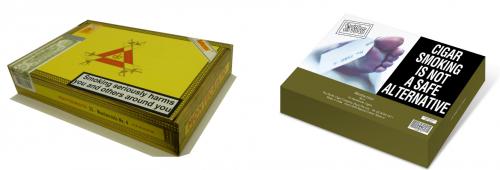
International trade is a matter of balance. Nations must implement legislation that is inviting to other nations, but does not hinder domestic production. The World Trade Organization (WTO) is, at its heart, an international body tasked with helping nations negotiate this balance. The Dispute Settlement Body guides the complainant and respondent to a resolution that is compulsory, binding and integrated, creating one of the most effective international bodies.
Cuba recently filed a complaint with the WTO against Australia. Cuba, famous for cigars, requested consultations regarding recent Australian laws which seek to discourage their citizens from smoking tobacco. Cuba claims the restrictions and regulations are inconsistent with Australia’s obligations under other international treaties, namely the TRIPS agreement concerning intellectual property and the Technical Barriers to Trade (TBT) agreement.
Australia’s new laws, The Tobacco Plain Packaging Act of 2011 and the Trade Marks Amendment, require tobacco products sold there to abide by certain packaging restrictions. Under the new law, all tobacco products must be sold in logo free, plain brown cardboard packaging. The objective of the plain packaging is to make the tobacco products less attractive to younger citizens and thus try to combat Australians from starting to smoke at a young age. This case is extremely interesting because regulations similar to these have been debated locally, namely in New York City, already a source of one of the highest tobacco taxes.
Cuba’s main contention is that the new laws present an unnecessary restriction on their intellectual property, namely their trademarks. Cuba asserts that the restriction on placing ANY trademark on the packaging violates the TRIPS and TBT agreements. The TRIPS agreement states, “The use of a trademark in the course of trade shall not be unjustifiably encumbered by special requirements, such as use with another trademark, use in a special form or use in a manner detrimental to its capability to distinguish the goods or services of one undertaking from those of other undertakings.” Article 8(1) of the agreement does allow a member to adopt regulations that are inconsistent with other sections if the laws promote public health.
Cuba believes Australia has taken the public health exception too far; essentially eliminating any reference to the national origin of their cigars and decimating an integral Cuban industry. Any marketing or advertising executive will stress the importance of brand recognition. Cigar aficionados will tell you how the best cigars are Cubans. Regardless of the intention, Australia is essentially stripping tobacco products of their connection to any country or nation. Its legislation is attacking a keystone Cuban industry.
It is no surprise the tobacco industry has joined together and formulated an attack on the legislation. Other nations, from the EU to South America, have joined the WTO consultations. The end result may result in Australia having to correct its legislation but it will not end the debate.
Is Australia violating international treaties by implementing these laws?
Is their intention to stop young citizens from starting to smoke a strong enough public health exception or are there other means of attaining those results?
Does Cuba, with its cigar industry, have the best case against these laws presenting unnecessary obstacles to international trade?
Although I am a strong opponent of smoking, cigarettes or other forms of tobacco, it seems that this regulation goes too far. As long as smoking is still legal, it is unreasonable to go so far as to completely anonymize the brands of an industry that relies heavily on reputation. Cuban cigars are synonymous with “quality” and being the best cigars you can by. While it is truly admirable to try and discourage young people from smoking, how are older folks who have disregarded the health risks and continue to smoke supposed to distinguish the types of cigars that they know and love to smoke? I see no way that a regulation such as this one could be upheld in that it completely obliterates a trademark. Instead, I think measures such as pushing the harmful effects of smoking on the packaging like NY does is a better way to go about it, in that folks who are still consciously buying products can at least purchase what they want to purchase.